There’s such a thing as “too much information”, especially for

“We must continue to create platforms of engagement and exchange that make a real difference.”
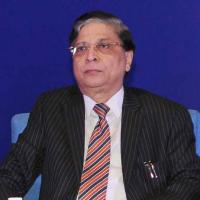
Hon’ble Justice Dipak Misra, former Chief Justice of India, was enrolled as an advocate on February 14, 1977, and practiced in Constitutional, Civil, Criminal, Revenue, Service, and Sales Tax matters at the Orissa High Court and the Service Tribunal. He was appointed as an Additional Judge of the Orissa High Court on January 17, 1996, and was later transferred to the Madhya Pradesh High Court on March 3, 1997, where he became a permanent Judge on December 19, 1997.
He assumed the position of Chief Justice of the Patna High Court on December 23, 2009, and later took charge as the Chief Justice of the Delhi High Court on May 24, 2010. He was elevated as a Judge of the Supreme Court of India on October 10, 2011. He served as the Chief Justice of India from August 28, 2017, until his retirement on October 2, 2018.
He delivered several landmark judgments that shaped Indian jurisprudence. His notable rulings include the upholding of the death penalty for the convicts in the 2012 Nirbhaya rape case, the decriminalization of Section 377 of the IPC, and the striking down of Section 497 of the IPC, decriminalizing adultery.
He is also recognized for his progressive stance on gender equality, freedom of speech, and his firm approach to issues like mob lynching, honor killings, and the Ayodhya dispute. His contributions to Indian law and his commitment to upholding justice have left an indelible mark on the country's legal landscape.
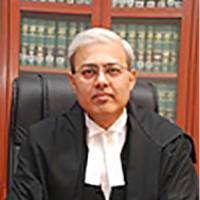
Hon’ble Justice Manmohan, Chief Justice of the Delhi High Court, enrolled as an advocate with the Bar Council of Delhi in 1987. He practiced primarily in the Supreme Court of India and the High Court of Delhi, specializing in Civil, Criminal, Constitutional, Taxation, Arbitration, Trademark, and Service litigation. He also served as a Senior Panel Advocate for the Government of India in both the Delhi High Court and the Supreme Court of India.
Designated as a Senior Advocate by the Delhi High Court on January 18, 2003, he handled various significant cases in his private practice, involving high-profile matters related to corporate disputes, taxation issues, and property encroachments. He has delivered several significant judgments, particularly concerning the rights of economically weaker sections, children's rights to education, and issues of human trafficking.
He has a strong interest in extra-judicial activities and has actively participated in and addressed various national and international seminars and conferences. His judgments on dynamic injunctions, computation of damages in trademark matters, and legal recognition of children's rights to use their mother’s surname in official documents are considered pioneering precedents.
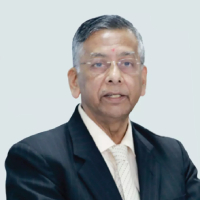
R. Venkataramani has represented several State Governments, Universities, Central and State Public Sector Undertakings in Supreme Court and High Courts. He has been a Special Senior Counsel for various departments of Government of India in Supreme Court and High Courts between 2004–2010 and also been acting as Counsel for the Supreme Court in matters pertaining to the service conditions of employees of the Court.
His professional engagements and areas of interest has been actively involved in academic activities, since 1988 commencing from his association with the National Law School of India University, Bangalore and is engaged with several law schools in their academic activities. Concerned with reforms in legal education, law research and socially relevant institutional developments, Mr. Venkataramani is a member academic council of Visva Bharati, (Shantiniketan) member board of studies of school of law Bennett University, Adjunct faculty in several Law Schools including Jindal Global University.
He is interested in promoting comparative law studies and in exploring new areas of legal theory and jurisprudence, such as law and science, technology and public policy, and international law and its impact on domestic law. He is also keen to contribute towards inclusive growth, diversity element in institutions of law and justice and to use law as an instrument of peace and goodwill.
He was enrolled in July, 1977 in the Bar Council of Tamil Nadu, joined the chambers of Mr. P.P. Rao, Senior Advocate, Supreme Court in 1979 and set up independent practice in Supreme Court in1982, designated as Senior Advocate by the Supreme Court of India in the year 1997 and appointed as a Member of the Law Commission of India in 2010 and again for a further term in 2013.
His other professional engagements was a Member of the Sub-Committee on Directive Principles of State Policy, constituted by the Commission reviewing the working of the Constitution under the Chairmanship of Justice M. N. Venkatachaliah.
Co-opted member of the Expert Group constituted by the Ministry of Minority Affairs under the chairmanship of Late Prof. N. R. Madhava Menon to examine and determine the structure and functions of an Equal Opportunity Commission he has also served as Member of the Ethics Committee of the Indian Council for Medical Research, Member of the Supreme Court Legal Aid Committee for many years, Co. chair of the Asian Jural Conclave being organized by Menon Institute of Legal Advocacy and Training and Lloyds Law School, a honorary capacity as the Administrator Cum Receiver of Amrapali Real Estate Projects under orders of the Supreme Court. He was also Member cum office bearer of several Lawyers’ Associations, National and International, Life Member of Indian Society of International Law, Resource person of the Society for its Annual Summer Courses and actively participating in the Projects of the Society.
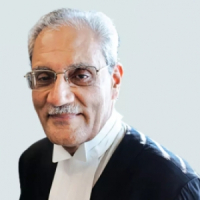
Janak D. Dwarkadas hails from a family of lawyers. His grand-uncle Tricumdas Dwarkadas, was the Founder-Partner of Kanga & Company, one of the oldest and most reputed firms of Solicitors in Bombay. His uncle, the late Damodar D. Damodar, retired as a Senior Partner of Kanga & Co. His father, the late Dilip Dwarkadas, was also an Advocate and one of the leading Counsels in the field of Income Tax.
Mr Dwarkadas specializes in Corporate Law, Intellectual Property Rights and Commercial Litigation including Securities Law and the newly-enacted Insolvency and Bankruptcy Code. Recently Mr. Dwarkadas successfully defended the statutory right of shareholders to requisition an Extraordinary General Meeting before the Division Bench of the Bombay High Court.
In a landmark decision delivered on March 22, 2022 in the matter of Invesco Vs. Zee Entertainment Enterprise Ltd. the Division Bench of the Bombay High Court after examining the provisions of the Companies Act 2013, held that the Board of Directors cannot sit in judgement of a notice requestioning an EOGM on the ground that the resolutions as proposed, if passed would be illegal or legally ineffective. He has represented clients in various High Courts as well as in the Supreme Court of India.
Mr Dwarkadas takes a very keen interest in public interest litigations (PILs), particularly those relating to the environment and public safety. He has appeared on behalf of the petitioners in PILs pertaining to: challenging the de-notification of a portion of Aarey Milk Colony from a “No Development Zone” to build the Metro 3 Car Shed; challenging permissions granted by the Tree Authority under the Municipal Corporation Act to cut/transplant 2,600 trees for the setting up of the Metro 3 Car Shed located in Aarey Milk Colony and challenging the permissions/clearances granted by the State and Central Authorities for construction of a coastal road in South Mumbai and the consequential cutting of trees and reduction in size of a public garden at Breach Candy to accommodate an access/exit ramp to/from the coastal road. The construction of the coastal road has been challenged on account of lack of environmental clearances as well as clearances under the Wildlife Protection Act for the preservation and protection of marine life.
Mr. Dwarkadas has also appeared in PIL petitions pertaining to: conservation of forests and preservation of natural heritage of hill stations like Mahabaleshwar / Panchgani; setting up of the Amby Valley Private City/Hill Station project by the Sahara Group at Ambavane and Lonavala; setting up of a gigantic off-the-coast port at Dahanu which has been declared one of the most ecologically fragile areas in India; removal of encroachments from the Sanjay Gandhi National Park which contains five lakes that supply drinking water to the city of Mumbai and cleaning up of the Mithi river to prevent recurrence of flooding in the city which occurred due to record rainfall on July 26, 2005.

Gourab Banerji was appointed as Additional Solicitor General of India (ASG) in the Supreme Court in July 2009 and served a five-year term. During his stint as an ASG, apart from the sheer volume of income tax matters assigned to him, he successfully represented the Government of India in many landmark cases like the Republic of Italy v. Union of India, (2013) 4 SCC 721 (“the Italian Marines case) and State of Punjab v. Dalbir Singh, (2012) 3 SCC 346, where the Supreme Court struck down the mandatory death penalty under the Arms Act 1959.
In particular, the latter provided Mr Banerji an opportunity to use his expansive experience and knowledge in comparative law, as he presented the Supreme Court with the law in several countries like the United States, United Kingdom, Australia, Uganda, Kenya and even Malawi. For this, the Supreme Court recorded its appreciation for his ‘considerable assistance’ for placing before the Court judgments from different jurisdiction on the question of mandatory capital punishment and decisions.
He has also been appointed as an amicus curiae by the Supreme Court in several matters covering a wide range of subject matters such as refugee law, service law, Supreme Court practice and procedure and arbitration. In 2011, a three-judge bench of the Supreme Court in Narmada Bachao Andolan v. State of M.P., (2011) 12 SCC 333, sought his assistance on the permissibility of State Council of Ministers to delegate its power to a subordinate authority to amend its own decision and whether such amendment was consistent with the Rules of Business framed under Article 166 of the Constitution of India.
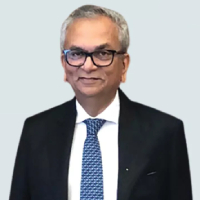
Ravindra Kadam was one of the youngest and longest serving Advocates General for the State of Maharashtra. He served the State in this capacity from 2005 to 2012. He has frequently appeared before other High Courts, the Supreme Court of India, the National Company Law Appellate Tribunal and the Securities Appellate Tribunal.
Perhaps Mr. Kadam’s most defining quality is his knowledge of and expertise in almost all fields of law – covering commercial suits, constitutional challenges, arbitrations, insolvency and bankruptcy matters, real estate and infrastructure projects, intellectual property rights, and criminal matters. .His areas of practice cover the entire spectrum and a plethora of subjects. He is considered to be an authority in IPR and the IBC. He is revered as one of the most sought after and preeminent senior counsel in the Bombay High Court.
In addition to appearing in landmark constitutional cases before the Supreme Court of India, Mr. Kadam represented the Securities and Exchange Board of India in the proceedings against Price Waterhouse& Co. with respect to the Satyam scam before the Securities Appellate Tribunal. He was one of the lead counsels appearing for TATA Sons in the Cyrus Mistry-TATA matter before the NCLT, Mumbai Bench. He has also represented regulatory bodies like the Telecom Regulatory Authority of India and the Reserve Bank of India and public sector undertakings in various matters before the Bombay High Court.
Mr. Kadam is equally renowned for acting in cases relating to environmental and social issues including (i) the Mill Lands Case; (ii) preservation of Mangroves in Mumbai; (iii) development of Hill-Top Zone in Pune; (iv) ban on dance bars; and (v) prevention of dowry deaths. He represented the government in the suo moto criminal proceedings taken by the Hon’ble Bombay High Court against Alistair Pereira, who was convicted for killing 7 people and injuring 8 while driving under the influence of alcohol.
Mr. Kadam frequently appears in arbitration proceedings before various High Courts. He has advised clients on comprehensive strategies relating to both Indian and foreign seated arbitrations.
GET EXPERIENCE
How you transform your business as technology, consumer, habits industry dynamic s change? Find out from those leading the charge.
GET EXPERIENCE
How you transform your business as technology, consumer, habits industry dynamic s change? Find out from those leading the charge.
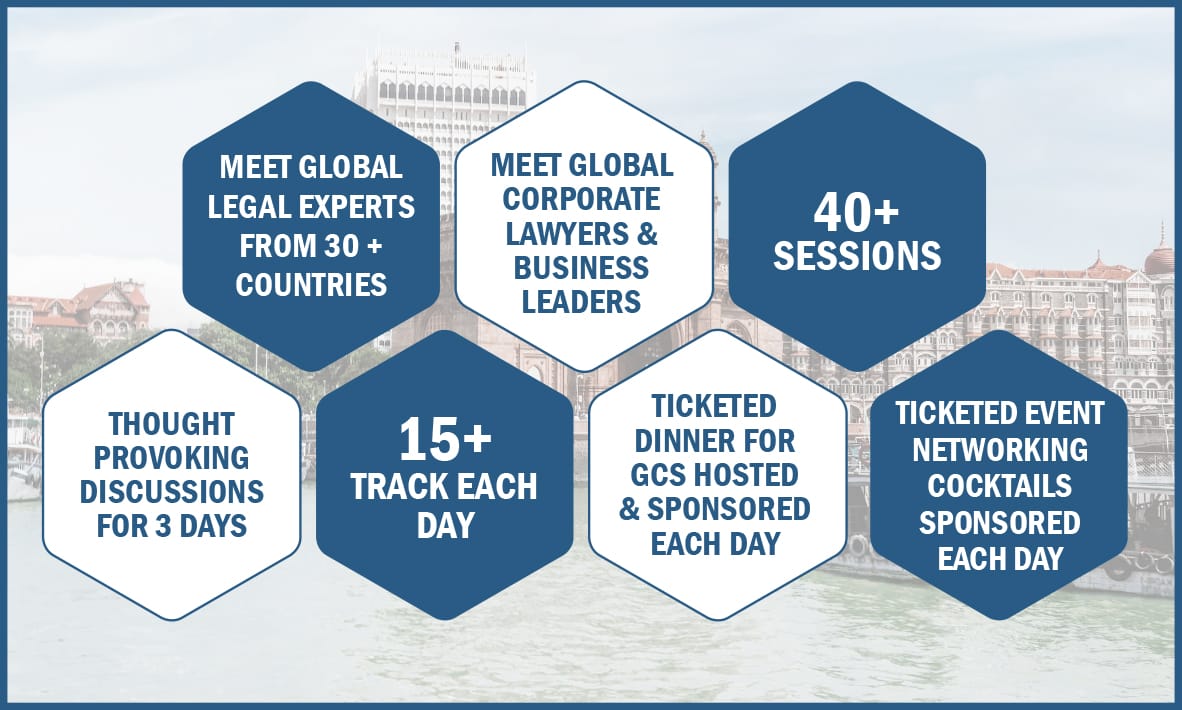
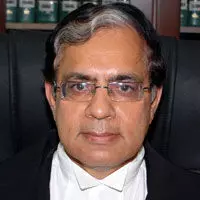
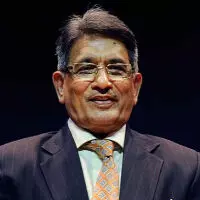




TRACK 1
M&A Landscape: Current Trends & Outlook



TRACK 2
Doing Business in UAE - Learn from the Legal Experts from UAE



TRACK 3
White Collar Crime: Update on Anti Corruption Enforcement & Insider Trading Risk & Compliance



TRACK 4
Infra & Energy Focus Panel - New Era - Energy, Infra & Projects Overcoming the Challenges.



TRACK 5
International Trade Sanctions relevant for Indian Businesses



TRACK 6
The Know- How’s of Handling Investigations Effectively



TRACK 7
Renewable Energy - Trends & Challenges



TRACK 8
Cross Border Investments & FDI



TRACK 9
M&A & Restructuring - Recent Market Trends



TRACK 10
Fostering Private Investments in Infrastructure & Energy



TRACK 11
Doing Business in Japan – Learn from Legal Experts from Japan



TRACK 12
What’s Next for the Digital Platforms & Big Tech? Does India needs an Ex Ante Competition Law?









Esg Strategy — Esg And Sustainability – Priorities For The Board Rooms. How Legal Departments Can Make A Difference? Esg Framework And Implementation – Role Of Gcs. Value Creation Through Effective Esg Program And Involvement Of Gcs.



Track 13
The Unicorn Story: Challenges & Opportunities



Track 14
Metaverse & The New Brave World



Track 15
Employment Law – Recent Trends on Global Mobility and Discrimination Issues at the Workplace.
• Challenges on mobile working – employment, tax, moonlighting and other issues.
Discrimination at the Workplace – what you need to know



Track 16
Restructuring, Turnaround & Insolvency



Track 17
Pharma, Healthcare & Lifesciences - Extremely Complex Regulatory Landscape - Key Learnings from Expert GCs.



Track 18
EU Artificial Intelligence Act: "Brussels Effect" on Indian Market



Track 19
Doing Business in Africa - Learn from Legal Experts from Africa



Track 20
Emerging Regulatory Issues: Online Gaming, Fintech & Insurance



Track 21
Emerging Landscape of Corporate Governance in India



Track 22
Audit of ESG Programs – External Controls Vs Internal Governance.



Track 23
Manufacturing Industry - Trends & Challenges



Track 24
Consumer Protection Act & Advertising Guidelines.



• BCI Notification for Entry of Foreign Law Firms in India
• Indian Lawyers & Foriegn Lawyers views on Impact & Way Forward









Track 25
Design Thinking of General Counsel Building Culture of Ethics, Compliance & Governance



Track 26
Anti -Money Laundering - Global Approach to Risk & Regulations



Track 28
Risk & Compliance - Key Compliance and Risk Management Issues to Consider.



Track 29
The Digital Personal Data Protection Bills



Track 30
Enforceability of Unstamped or Insufficiently Stamped Arbitration Agreement in The Light of Supreme Court Ruling.



Track 31
Creating a Culture of Innovation in The Legal Department: What steps can legal Leaders take to Foster a Culture of Innovation and Encourage Creative Thinking among Team Members?



Track 32
IP, Data and Content issues with Generative AI – The Least You Need to Know



Track 33
Why Indian Arbitration is unable to overcome the baggage of Civil Suits?



Track 34
Cyber Security : Cyber Crime & Online Fraud



Track 35
Responsible AI & Ethical AI that every business should know?



Track 36
Construction Disputes



Snap Out Of It! Overcoming The Data Theft Blues & Finding Industry Leading Practices To Help Reduce The Impact. Avoiding Data Disasters: Protecting Sensitive Information In Search, Review & Production


